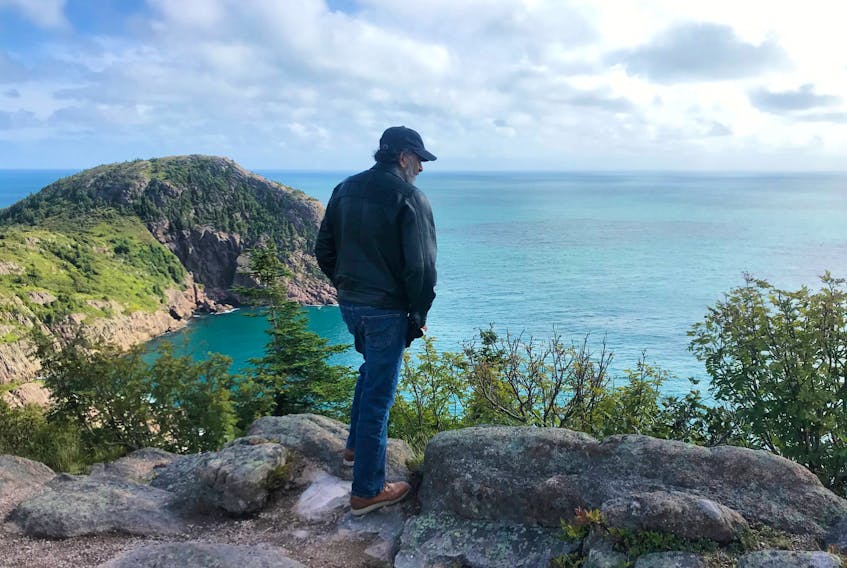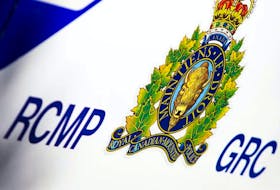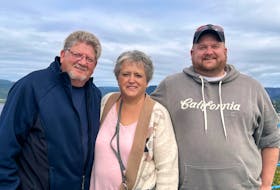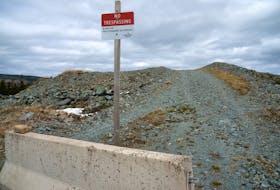ST. JOHN'S, N.L. — It's not something that's often done during a criminal trial at Newfoundland and Labrador Supreme Court. Neither the judge nor the Crown in Friday's case had done it before. The defence lawyer had, a few times.
Late in the morning, they all gathered — along with the accused and a member of his family, two sheriffs, the court clerk and three journalists — and took the trial out of the courtroom and on a field trip to Signal Hill, to the site of an alleged attempted murder.
The accused is a Memorial University student charged with trying to kill his friend by wrapping him in a hug and throwing them both over the edge of a cliff near Ladies' Lookout in April 2017. The men fell a few feet to a ledge, and the complainant sustained minor injuries.
Police photos shown in the courtroom earlier in the week depicted the spot as rocky, dappled with packed snow and bare branches of brush. On Friday, the hike from the Signal Hill Visitors’ Centre to the spot in question was more lush and green. Because the visit was not audio recorded, as are all court proceedings, attendees were asked to remain silent and walk in single file.
Prosecutor Jude Hall led the 15-minute hike to the site before pointing out the specific location. As the accused stood back alongside his relative and his lawyer, Mark Gruchy, sheriffs watched, reporters took photos and Justice Vikas Khaladkar had a good look around, standing close to the edge and observing the terrain and slope below.
That slope, the court had heard on Wednesday in the testimony of an expert in high-angle rescue, has a 42-degree decline for the first 21 feet down, then an 88-degree slope for the next 16.5 feet. Anyone falling to that point would likely receive serious injuries, he said, possibly fatal. About 20 or 30 feet past that, the expert explained, the slope becomes near vertical and would result in certain death.
Friday's visit lasted no more than five minutes before the trek back down the hill began.
"Thanks everyone," was all Hall said once the group had returned to the parking lot. "See you Monday."
Hall is set to soon close his case against the accused — whose name is banned from publication at this point — having called six witnesses to testify over the past week. Among them: the high-angle expert, police officers, a linguist specializing in Farsi and an assistant professor from MUN's engineering department.
The RNC officers spoke of having interviewed the complainant, who told them he and his friend had been looking for a ski trail on Signal Hill when his friend had come quickly toward him, put his arms around him in a hug and attempted to throw them both over the side. He insisted the man "is not a murderer," an investigator testified, indicating the complainant was not happy the man had been charged with trying to kill him.
The linguist, a professor from McGill University, translated a series of text messages between the accused and his brother before the alleged murder attempt. The accused had told his brother "I'm thinking of killing (the complainant) and then myself," and indicated he was depressed, according to her translation, while his brother attempted to console him and told him to "stop talking nonsense" and "wait a bit, I will be there" in St. John's from the Middle East.
On cross-examination, the linguist acknowledged some of the texts could be interpreted differently. Others, she was adamant could not.
The professor testified the complainant had called him on his cellphone after the alleged murder attempt and had asked him to call police.
The defence's arguments in the case are unclear so far, but Gruchy has suggested the accused and the complainant were in a romantic relationship. His line of questioning for the professor included queries about alleged ties to the Iranian government and certain religious beliefs related to homosexuality and the condemnation of it.
"I'm talking about the very practical pressure that people who are not Canadian citizens can feel in these very close relationships, when they are citizens of an authoritative state," Gruchy told the judge at one point, after he objected to a particular series of questions. "The very thing that is central to this case can get them hung from an automotive crane."
The complainant will take the stand when the trial resumes Monday.
[email protected]
Twitter: @tara)_bradbury
Related









